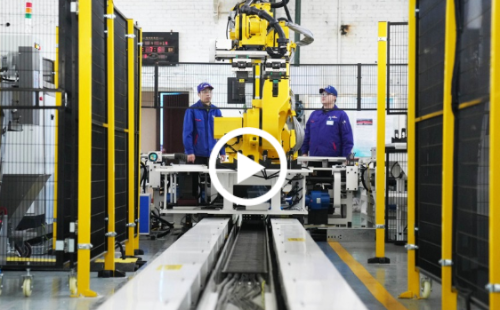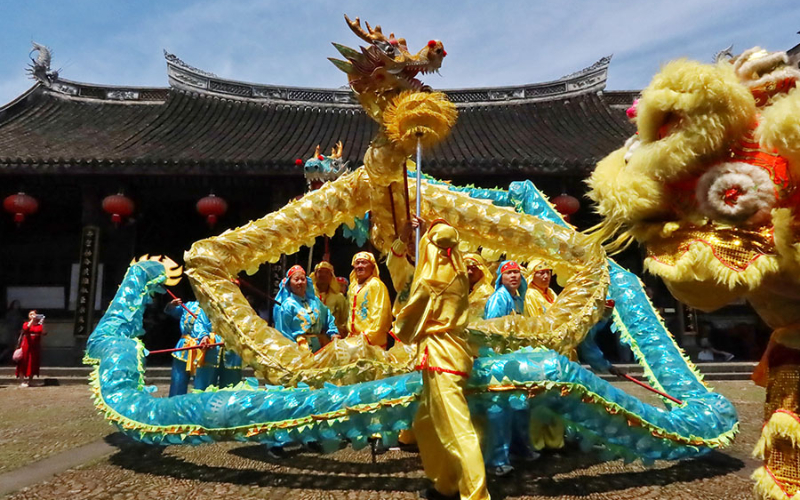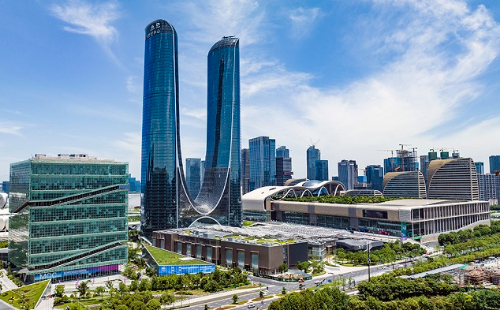Nation vows to further expand opening-up
In order to open up further to the world, China will build on a first-class business environment that is market-oriented, based on rule of law and internationalized, top legislator Zhao Leji said, adding that the country will also shorten the negative list for foreign investment.
He made the pledge while delivering the keynote speech at the opening ceremony of the Boao Forum for Asia Annual Conference 2024 in Boao, Hainan province, on Thursday.
The country will comprehensively remove restrictions on the access of foreign investment to the manufacturing sector, and further implement national treatment for foreign enterprises, said Zhao, chairman of the Standing Committee of the National People's Congress, China's top legislature.
China will also offer more convenience for foreigners coming to China for work, study and travel, he added.
The event on Thursday attracted around 1,500 participants, including political leaders, business executives and scholars from over 60 countries.
Zhao said China is willing to strengthen cooperation with other countries in high-tech innovation and will further promote open, green development.
The nation's green economy is expected to unleash an investment and consumption market worth 10 trillion yuan ($1.38 trillion) a year, he added.
Noting that Hainan is building a free trade port with Chinese characteristics, Zhao welcomed people to come to Hainan to invest and operate businesses.
Leon Wang, executive vice-president of global biopharmaceutical giant AstraZeneca, said Zhao's speech emphasized China's determination to promote higher-level opening-up, which will bring huge opportunities for multinationals like his company.
"As mentioned in the speech, Asia has become an important global force in the field of science and innovation, and China plays an important role in responding to severe health challenges that face the world," Wang said.
Marc Horn, president of science and technology company Merck China, said, "This country is very resilient and has shown that it can transform very rapidly, on a good trajectory for transformation.
"The new quality productive forces is a new area where I think there's a lot of growth opportunity for us, so we want to continue doing investments in China," Horn added.
In his speech, Zhao noted that the expected target for China's economic growth this year is around 5 percent, and the country will continue to take the lead in growth among major global economies.
China will inject strong momentum into the world's economic recovery and provide more opportunities for the development of other countries, especially neighboring Asian countries, he said.
Zhang Donggang, Party secretary of Renmin University of China, said Zhao's speech shows that the Chinese government has put more emphasis on the quality of economic growth rather than simply pursuing greater speed.
"China's economic growth target, which is higher than those of many developed economies, sent a strong signal to the outside world that the Chinese economy is resilient, has potential and development prospects, and can provide strong support for world economic recovery," Zhang said.
"It will also help the country achieve high-quality development through structural adjustment and industrial upgrading, and further contribute to more sustainable and balanced economic development," he added.
In his speech, Zhao said the building of a community with a shared future for mankind has grown from a Chinese initiative to a global action, and has evolved from a beautiful vision to an enriched practice.
He called on Asian countries to oppose power politics and hegemonic behavior, and to maintain a regional order that balances the aspirations of various parties and accommodates the interests of each party.
Asian nations should keep the region's long-term stability in their own hands, and work together to facilitate Asia's development, advance its openness and promote Asian civilization, he said.
Sun Jisheng, a professor and vice-president of China Foreign Affairs University, said that China's development of its relations with neighboring countries, based on its philosophy of "amity, sincerity, mutual benefit and inclusiveness", has "played an important role in peace and stability in its neighborhood".
"In addition to its neighborhood, China has endeavored to shoulder the duties of a major country in the world and contribute to the peace and stability of the world," Sun said.





